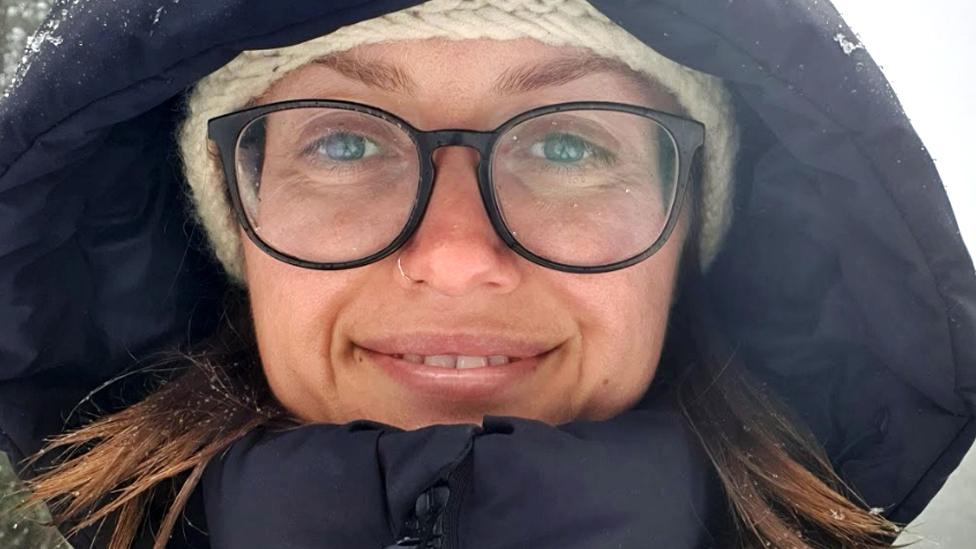Natalie Corbett sacrificed flushing toilet to count Antarctic penguins
- Published
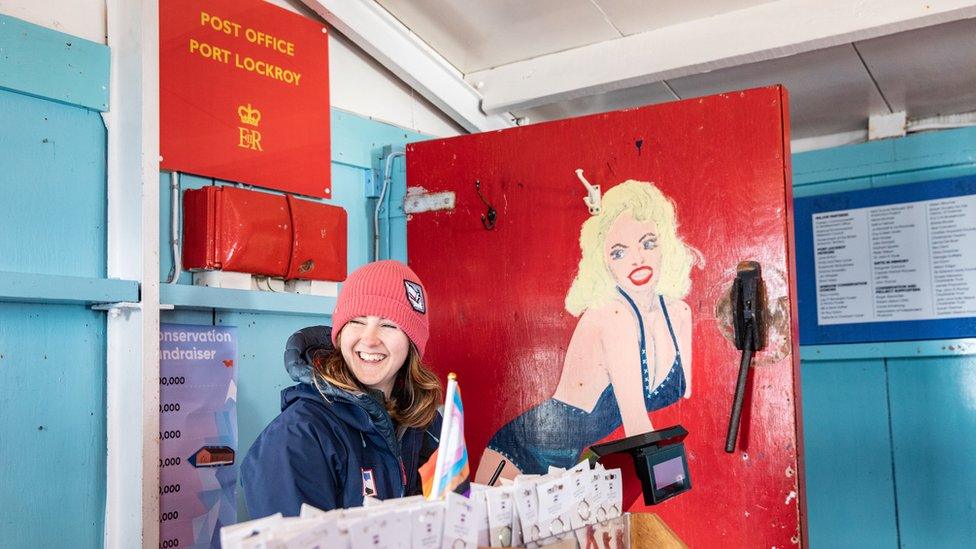
Adventurer Natalie Corbett helped run one of the world's most remote post offices
A woman who spent five months counting penguins at a remote base has called the experience "freeing".
Natalie Corbett from Hampshire moved to Port Lockroy - the UK's first base in Antarctica - in 2022.
She was one of four people selected from 4,000 applicants to live at the hut, which had no flushing toilet or internet.
Ms Corbett spent her time running the gift shop, welcoming 18,000 visitors to the island, and logging wildlife.
Marking its 80th anniversary this weekend, Port Lockroy was established on Goudier Island in 1944 as part of a secret WWII mission to ensure a permanent British presence in Antarctica.
The UK Antarctic Heritage Trust took over the site in 2006, and selects a new team of people each year to run its post office, museum and track a colony of gentoo penguins.
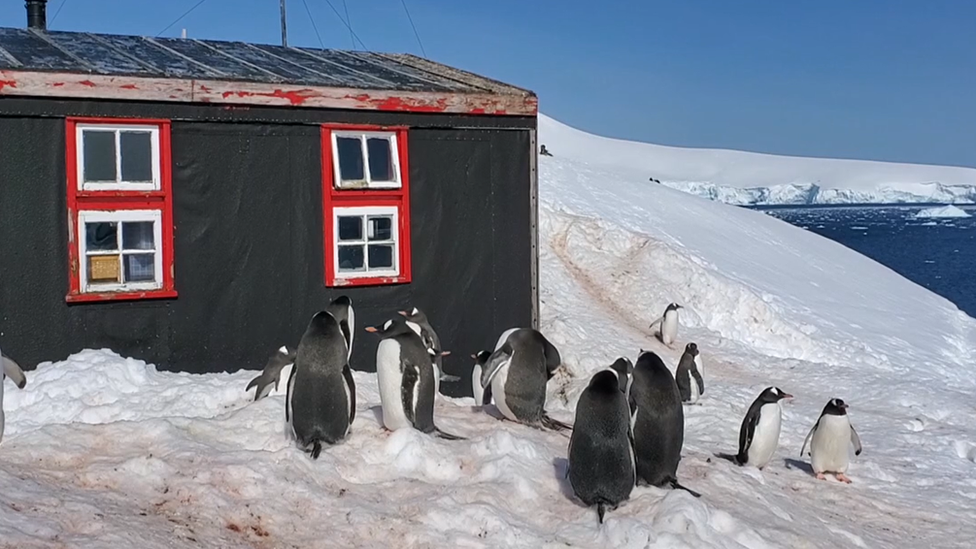
The team shares the island with about 2,000 penguins
Newlywed Ms Corbett made the 9,000 mile (14,484km) trip from the small village of Hill Brow in November 2022, leaving her husband behind for the "once-in-a-lifetime experience".
Cut off from society with no Wi-Fi, she said it gave her a "greater appreciation" of the world around her.
Most of her days were spent welcoming cruise passengers onto the island and keeping track of the penguins - but she admitted it was often difficult to know whether she had counted the same one twice.
"Quite literally you're out there with a notepad and a pencil and you're just counting the penguins - it's very simple," she said.
Ms Corbett shared the island with team members, Clare Ballantyne, Mairi Hilton Lucy Bruzzone and Field Operations Coordinator Vicky Inglis - who visited for 10 weeks to help the explorers settle in - and returned home in March last year.
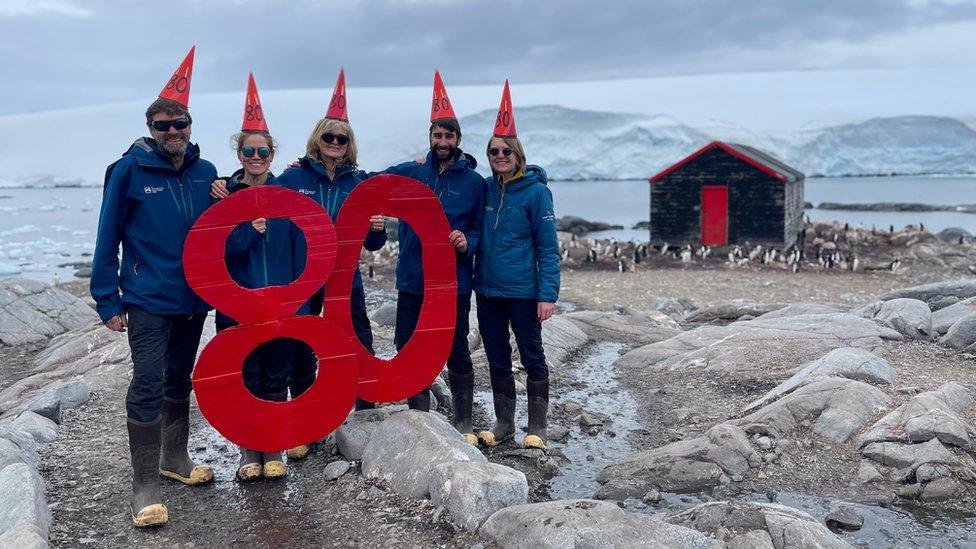
Team members go through a rigorous vetting process, as the site is very basic and has no running water
Camilla Nichol, chief executive of the UK Antarctic Heritage Trust, said each team undergoes two weeks of training to make sure they are able to cope with living in such an isolated place.
The island is about the size of a football pitch and the teams are taught to deal with sub-zero temperatures and almost continuous daylight.
Training also involves briefings from a "Penguinologist" and remote first aid.
Describing the living arrangements, Ms Nichol said: "It's a bunkhouse - it's comfortable, you have everything you need. You just don't have WiFi and internet and it is basic living."
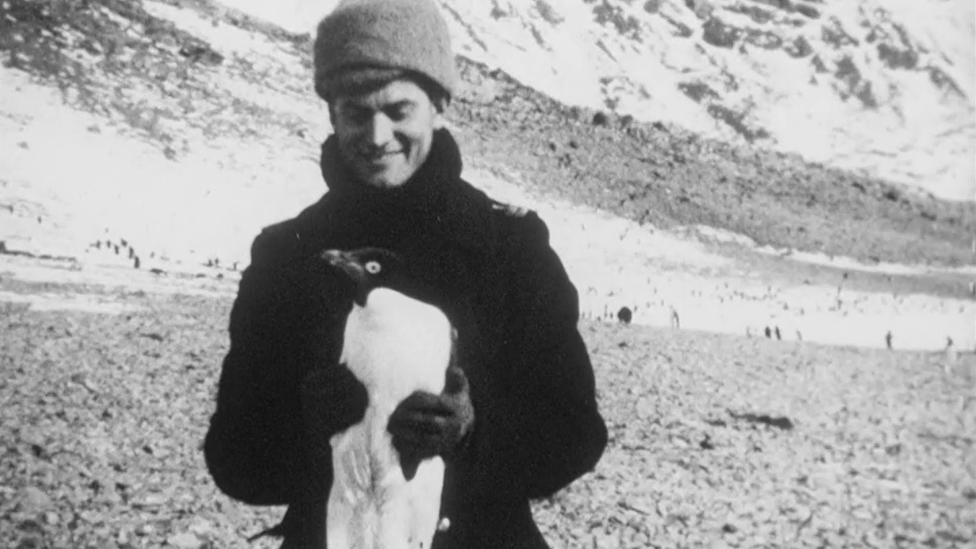
Port Lockroy was used as a site for scientific research until 1962
This season the island is inhabited by another new team who have taken over the roles and maintenance.
Wildlife Monitor Jerome Viard has had his hands full, with a new influx of penguin chicks to keep track of.
"We've got now more than 2,000 on the island because we have the adults and all the chicks with us," he said.
Postmaster Laura Büllesbach expects to handle about 90,000 post cards in the remote post office, before heading back to the UK in March.
She said: "It feels really special because it feels like we're walking in the footsteps of the people that have come here before us."

Follow BBC South on Facebook, external, X, external, or Instagram, external. Send your story ideas to south.newsonline@bbc.co.uk.
Related topics
- Published24 January 2024
- Published14 January 2024
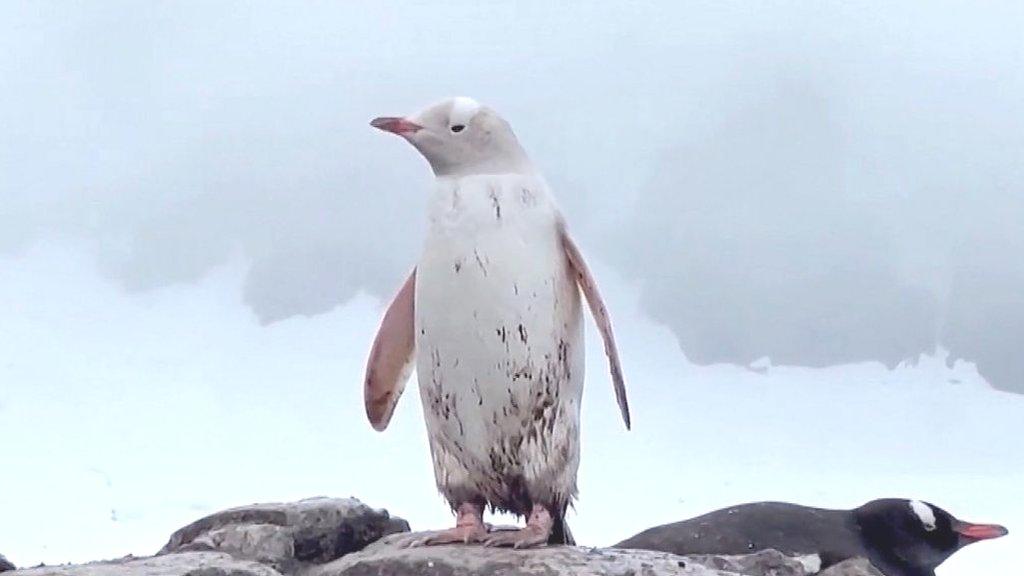
- Published4 October 2022
